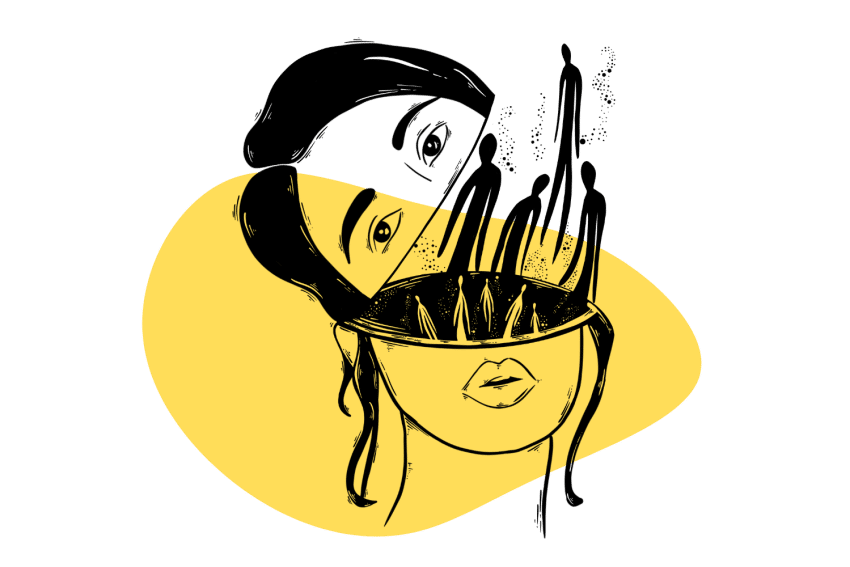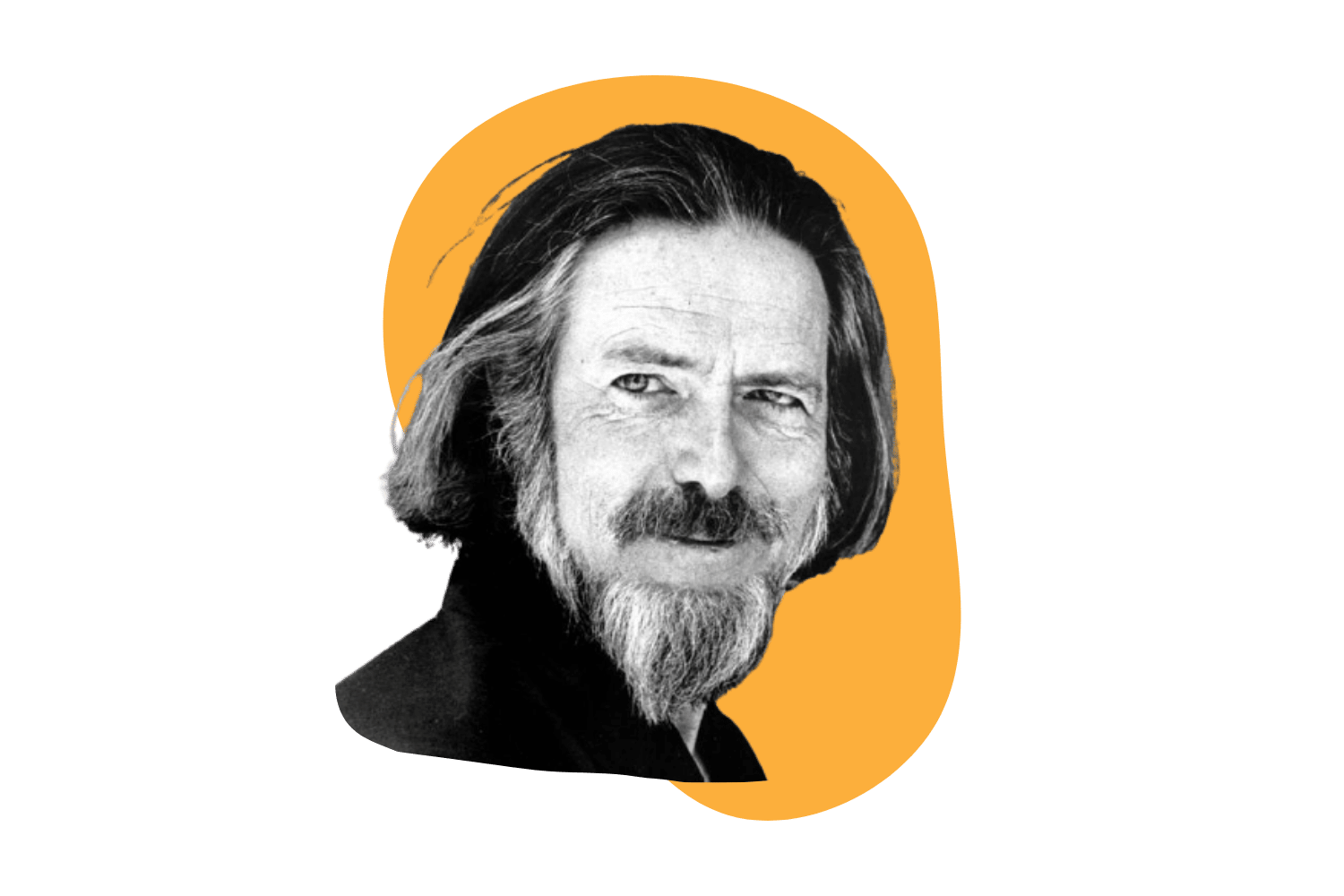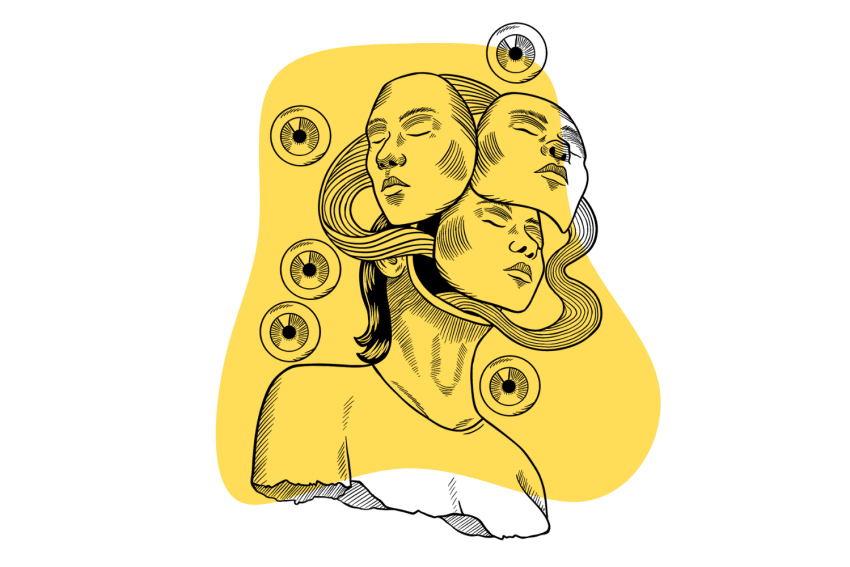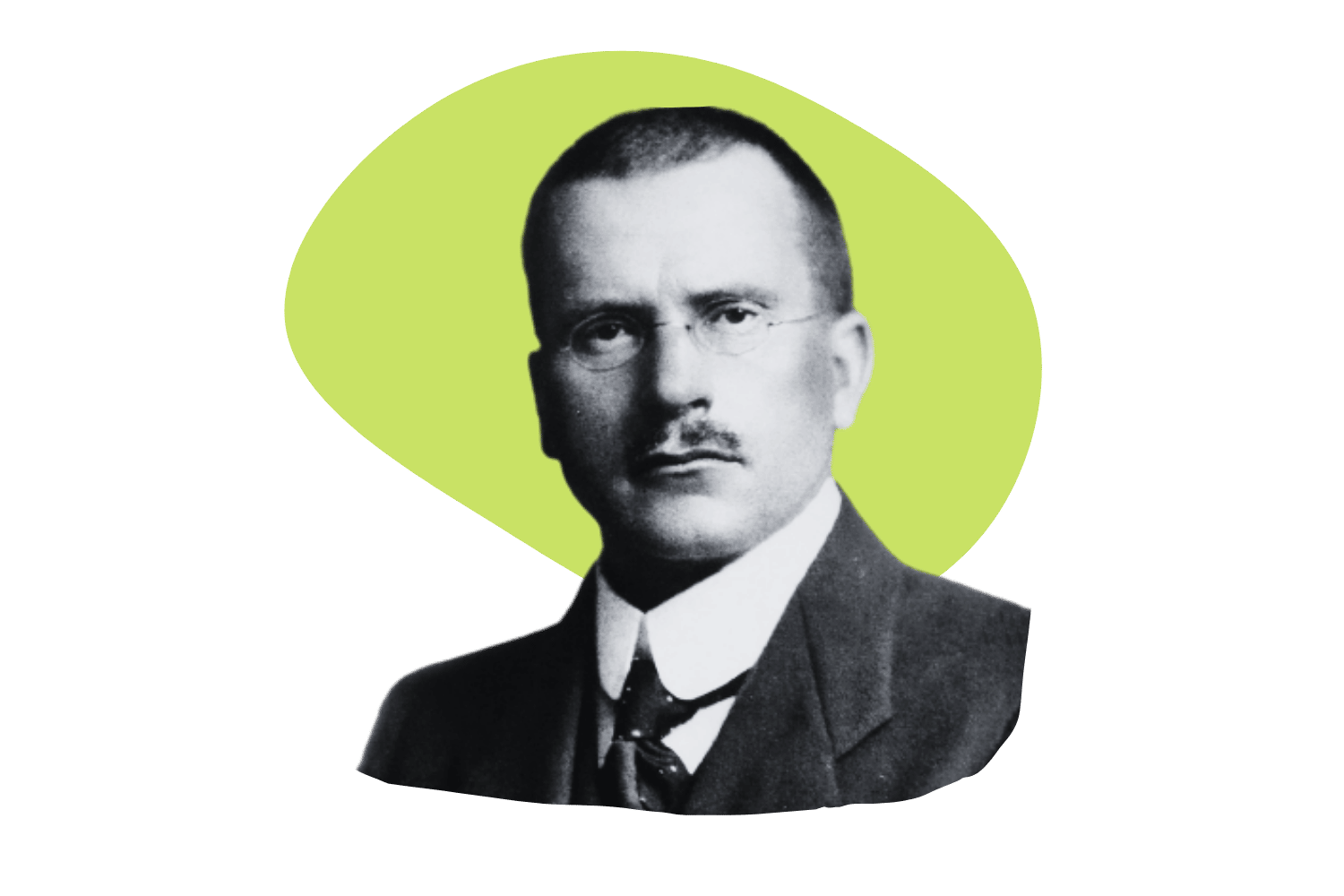100 Shadow Work Journaling Prompts
The easiest way to get started with shadow work (right now) is to do some journaling. Here are 100 shadow work prompts to get you going.

Shadow work aims at resolving unwanted and repressed aspects of the self (such as greed, lust, anger, or aggression). The goal is to turn these unwanted traits into an asset rather than a liability.
Practicing shadow work is a lifelong process — but even just a small amount of effort applied in the form of journaling can make some substantial leaps and bounds in eliminating some of our toxic patterns or traits.
There’s a lot of low-hanging fruit here regarding personal development that starts by simply answering a few confronting questions about who you “think” you are.
Shadow Work in A Nutshell
Shadow work is a concept introduced by the Swiss psychologist Carl Gustav Jung.
The idea starts with our persona — which is the “you” that you present when you want people to accept and like you. All the parts that don’t fit that ideal persona are repressed. These repressed aspects make up the shadow.
We can successfully repress traits that don’t conform without persona — but that doesn’t mean they aren’t there. These traits remain deep within the unconscious, influencing how we think and behave.
The more we suppress our shadow selves (either knowingly or unknowingly), the stronger it becomes.
Shadow work is the process of identifying and acknowledging the traits we suppress and reintegrating them into the psyche in a healthy way. This removes the unconscious control they have over our thoughts and actions.
Traits commonly found in the shadow:
- Selfishness
- Lust
- Greed
- Anger
- Envy
- Desire
- Playfulness
- Creativity
- Sexual Desires
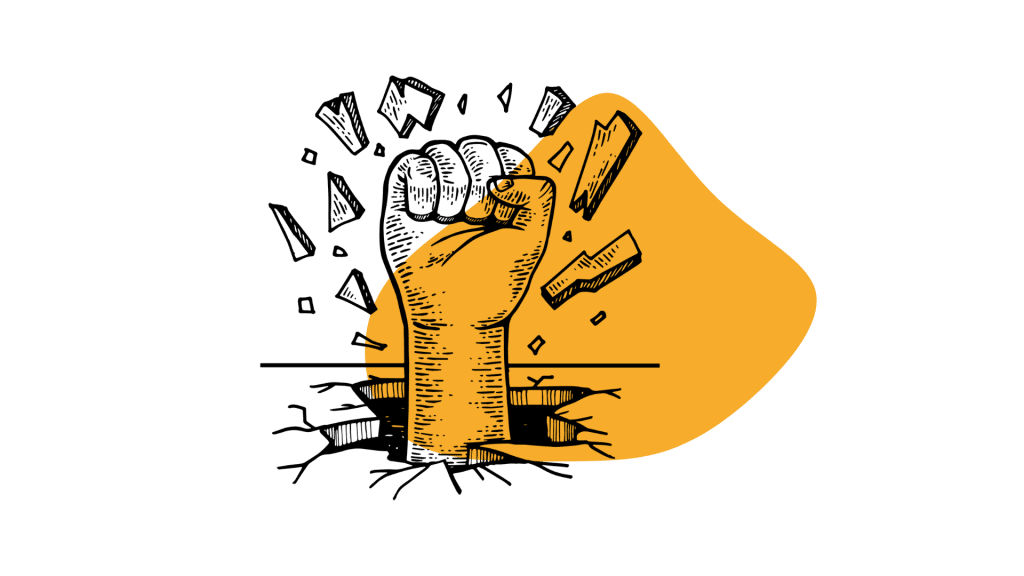
How To Use Journaling For Shadow Work
Shadow work requires considerable moral effort. It involves acknowledging the dark aspects of one’s personality that may be hard to accept. We’re forced to consult our resentments in life and dig to the root of the problems, which isn’t easy.
Journaling is the best way to get started with shadow work. By following the prompts, we can tap into the mind and identify various aspects of the shadow you may be oblivious to. And best of all, it’s free.
Once you’ve identified the shadow, the real work begins of integrating it.
Tips for getting the most from your shadow work journaling practice:
- Aim to be as authentic and honest as possible (it’s going to feel uncomfortable at times).
- Practice tapping into your emotions — nobody is going to read this, so let anything that pops up come out onto the page.
- The prompts below will help you get started, but feel free to write down anything else that comes up during the session.
- Don’t feel pressured to write a lot — journalling isn’t a competition and works best when it happens organically. If you only have a few words to say, just leave it there and come back to it later.
- Set up a routine or ritual around your journaling — this will help get you into the right mindset for the practice to work more efficiently.

How to Use These Shadow Journaling Prompts
These prompts are broken up into sections to introduce you to different aspects of shadow work. Each module has a specific focus and is designed to help you identify with different aspects of your shadow.
Some of these questions may be triggering. The very nature of shadow work is to point out aspects of your personality that your ego disagrees with. When the ego is challenged, it can become triggered and defensive. This is where the need for “moral effort” comes in.
Often, the questions we have the hardest time answering or find the most pointless offer us the most value. There’s usually a reason our minds feel repelled by certain types of questions or prompts. The whole point of this journaling is to probe the psyche and challenge the ego so we can become more conscious.
I recommend treating each module as its own session, but you can use these prompts however you like. Take some time first thing in the morning or in the evening before bed. Meditate, make some tea, or do whatever you need to do to get yourself into inquiry mode.
Receive These Prompts Daily By Email (30 Days Total)
If you’d like to start a 30-day shadow work journaling process — we’ve included all of these modules in a separate email feed. Sign up by entering your name and email into the form below to start receiving your prompts.
Each morning at 4 AM EST, you’ll get an email with the next set of prompts. Whenever you have time, sit down and go through the questions as honestly as you can.
→ You can also just copy and paste the full list of questions here.
100 Shadow Work Journaling Prompts To Become More Conscious
Without further ado, let’s get started with the prompts.
1. Setting Intentions
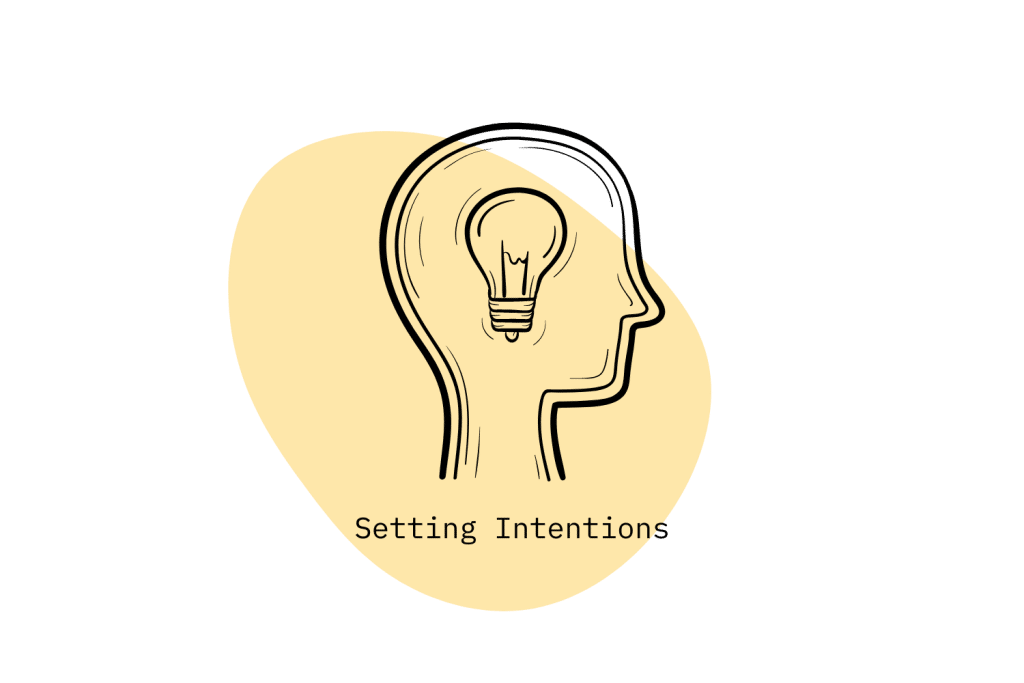
Warriors use their intent and will to shape their lives. All of their actions are conscious, intentional, and complete.
— Kerr Cuhulain
A core aspect of shadow work is to set some intentions before you begin. What do you want to get out of your shadow work practice? What brought you here?
The Prompts
- What aspects of yourself would you like to improve? Why?
- What does the term ‘Shadow Work’ mean to you?
- What are three main goals you want to achieve with your shadow work?
- What are your motivations for exploring shadow work?
2. Identifying the Shadow
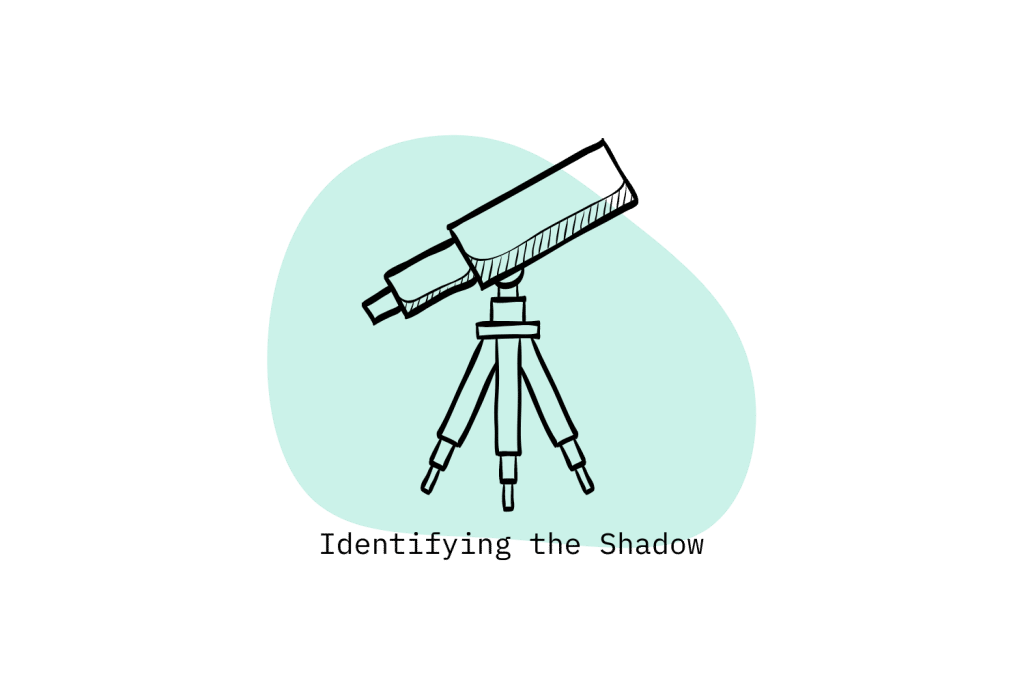
Your Shadow is all of the things, ‘positive’ and ‘negative’, that you’ve denied about yourself and hidden beneath the surface of the mask you forgot that you’re wearing.”
— Oli Anderson
The first step in the process is to learn how to identify aspects of your shadow. This involves consulting your resentments and probing the psyche for traits we don’t want to accept about ourselves.
Think about any dark desires or fantasies you may hold. Consider how you may be projecting aspects of your own shadow onto others. Define specific traits you deem “good” or “bad” and why you might label them this way.
The Prompts
- Make a list of the traits you consider to be the “worst” traits a person can have?
- Make a list of the traits you consider to be the “best” traits a person can have?
- What causes you to feel shame?
- Are there any traits you have that you consider “negative” that also provide you with some sort of advantage or benefit in life?
- How do you measure success? What motivates you to achieve success?
- Do you have any dark desires or fantasies? Where might these desires come from?
2.1. The Persona

Personality is like a charioteer with two headstrong horses, each wanting to go in different directions.
Martin Luther King, Jr.
The persona is the outward-facing self. It’s the mask we wear in the world that projects our ideal traits to conform with others and be liked.
Our persona may not match who we truly are underneath the mask.
In order to maintain our persona, we must lie to ourselves and others. We hide the negative parts we don’t want others to see and highlight the traits we want to embody.
Everything we hide from our persona ends up becoming our shadow.
The Prompts
- How do you want other people to see you?
- What do you lie to others about? Why?
- What do you lie to yourself about? Why?
- What do you wish people understood about you?
- When do you feel most capable of being your true self?
2.2. The Golden Shadow

For things to reveal themselves to us, we need to be ready to abandon our views about them.
Thich Nhat Hanh
The shadow is a powerful force — forming much of our creative and destructive powers.
Learning to define your shadow and acknowledge its existence allows you to take advantage of this power in a healthy and constructive way.
Not all parts of the shadow are negative. The shadow merely represents the traits we suppress.
Sometimes this can involve “positive” aspects like playfulness, sexual desire, or creativity. This is referred to as the “golden shadow.”
The Prompts
- Who do you admire most? What traits do you admire about them?
- Which of your traits or characteristics are you most proud of?
- Under what conditions do you experience your most inspired and creative self?
2.3. Animus/Anima

What is the most beautiful in virile men is something feminine; what is most beautiful in feminine women is something masculine.
Susan Sontag
Part of the shadow is comprised of concepts called the anima and the animus.
The animus is the unconscious masculine traits in women, and the anima is the unconscious feminine traits in men.
In young boys, the anima is often suppressed when he’s taught to subdue traits conventionally viewed as “feminine” — such as dancing, playing with dolls, showing signs of vulnerability, expressing love or emotion, etc.
In young girls, the animus is suppressed when they suppress masculine traits — such as aggression and competitiveness.
→ Jordan Peterson explains the animus & anima.
The Prompts
- What are your preconceptions towards masculinity? Where did these come from?
- What are your preconceptions towards femininity? Where did these come from?
- Make a list of your masculine traits, behaviors, and desires.
- Make a list of your feminine traits, behaviors, or desires.
3. Shadow Suppression
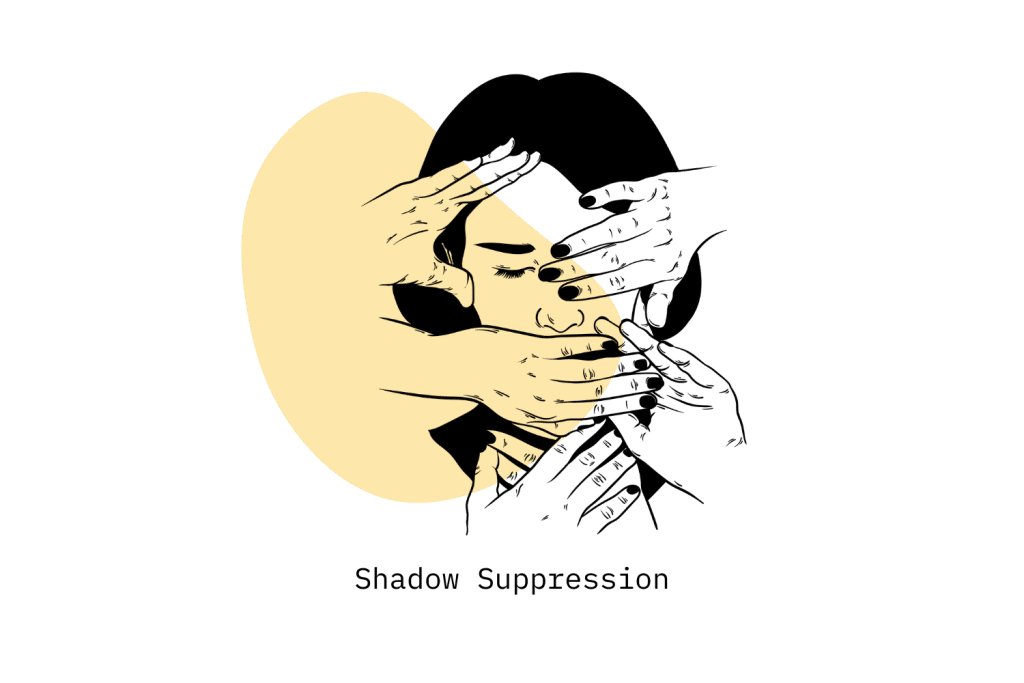
The ability to observe without evaluating is the highest form of intelligence.
Jiddu Krishnamurti
When we have a thought, emotion, or urge that conflicts with our persona, the mind will attempt to ignore it and pretend it doesn’t exist. This is easier than working out the paradox this feeling presents.
We can repress these urges or emotions, but there’s a consequence to doing this.
Unconsciously, these suppressed urges can influence our conscious actions — leading to confirmation biases, projection of our negative traits onto others, or compulsions for activities that help further avoid facing our conflicting thoughts or emotions.
The Prompts
- Do you have any addictive tendencies or compulsions? What do they do for you?
- Which cognitive biases are you most guilty of?
- Are there any groups or individuals you dislike? What don’t you like about them?
4. Self-Awareness
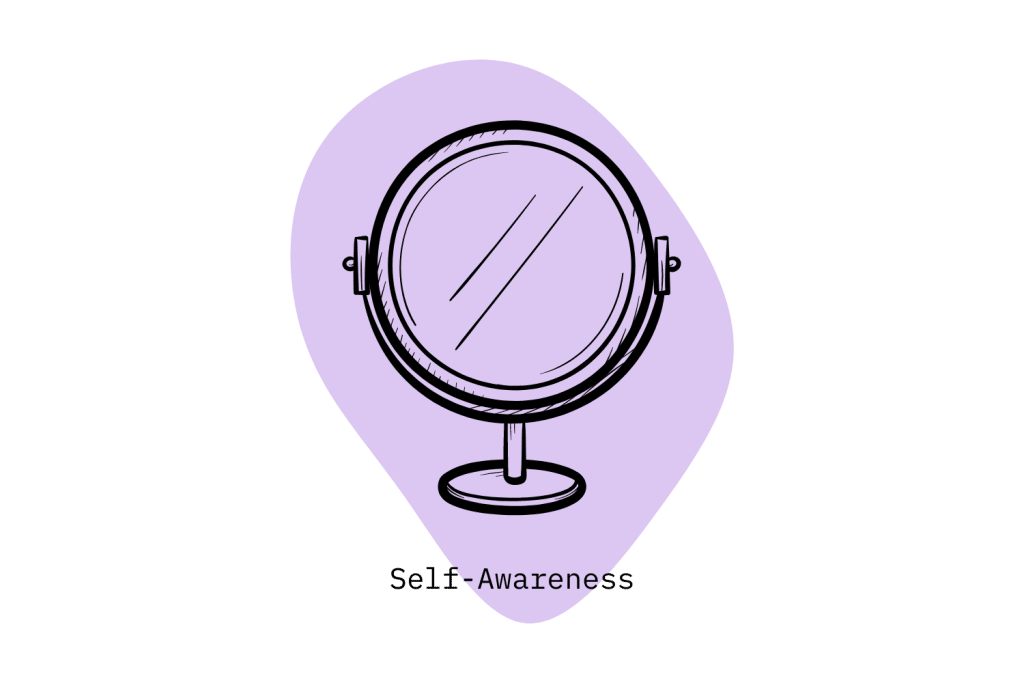
Until you make the unconscious conscious, it will direct your life and you will call it fate.
Carl Jung
People are not born completely self-aware — it’s a learned process that takes effort and mentorship to develop completely.
Working to improve your self-awareness will make it easier to observe the psyche and identify the influence past traumas or upbringing have on the unconscious mind.
The Prompts
- What makes you feel powerful?
- What makes you feel calm & relaxed?
- How do you recharge?
- How do you put yourself first without feeling guilty?
- How do you spend your time when you’re alone?
4.1. Somatic Manifestation
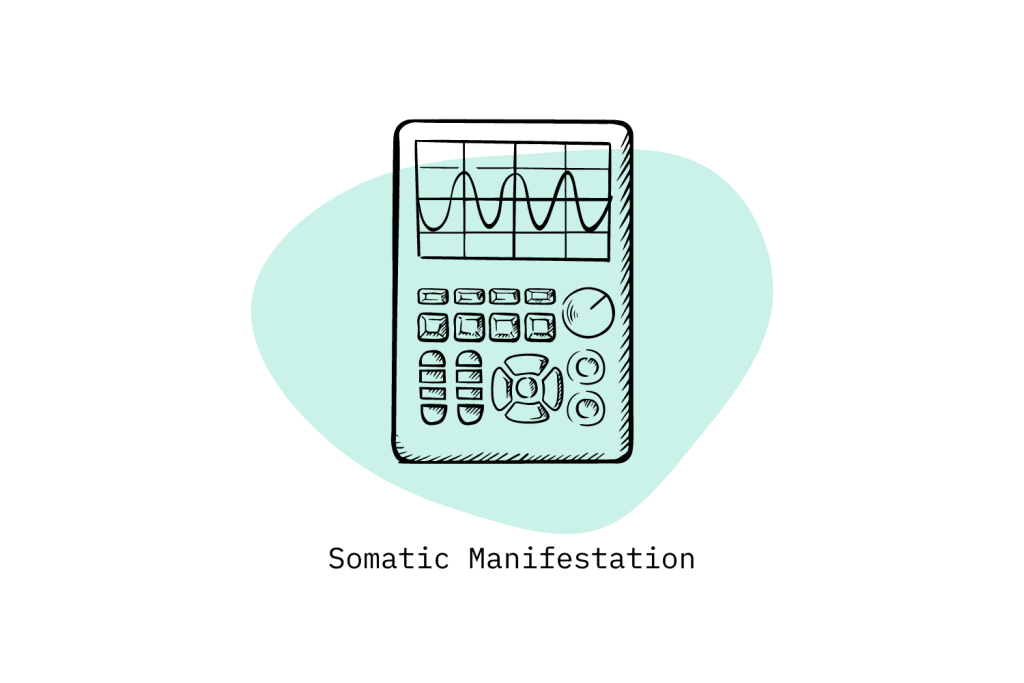
All emotions, even those that are suppressed and unexpressed, have physical effects. Unexpressed emotions tend to stay in the body like small ticking time bombs—they are illnesses in incubation.
Marilyn Van M. Derbur
The “somatic shadow” is the physical manifestation of our unconscious shadow.
This is what causes your throat to feel tight or your muscles to tense up when trying to talk about topics that bother you or make you uncomfortable.
Learning how to notice the physical signs of unconscious influences is a helpful way of noticing and acknowledging the shadow.
The Prompts
- What are the first signs that you’re burning out?
- What are the physical manifestations that present when your mental health starts to dip?
- What physical reactions present when you’re angry?
- What physical reactions present when you’re happy or excited?
5. The Collective Unconscious
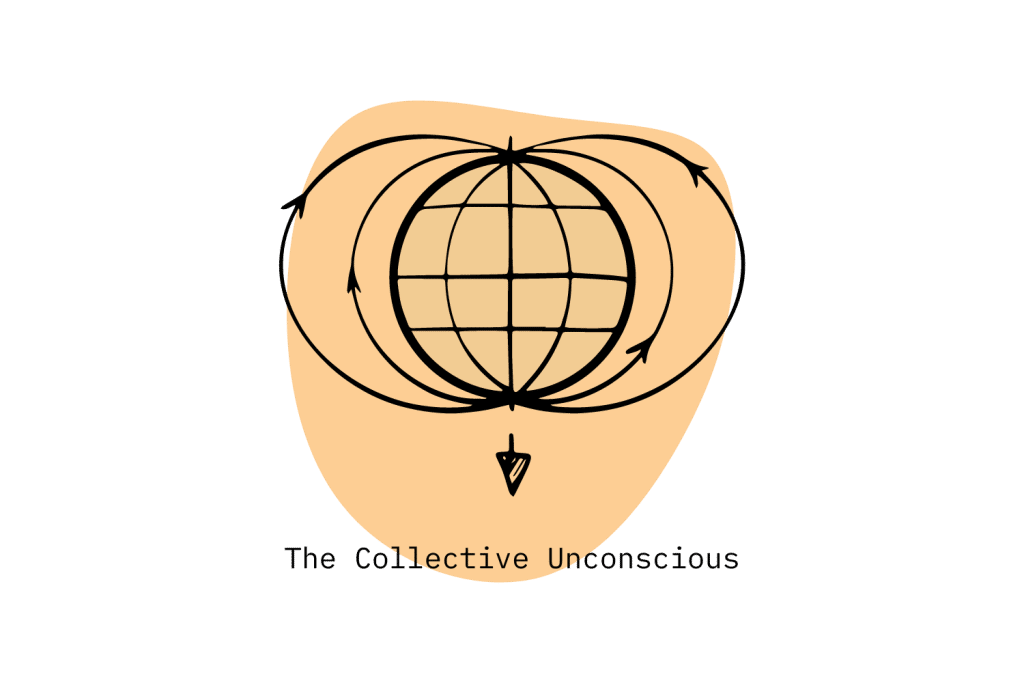
Knowing your own darkness is the best method for dealing with the darknesses of other people.
Carl Jung
The collective unconscious is a concept highlighted by Carl Jung that describes the deepest layers of our unconscious self. It’s shared by all humans.
Jung outlined this concept and brought it to the field of psychology, but he wasn’t the first person to identify this unconscious realm. Many cultures throughout history have mentioned the idea of a shared collective consciousness.
The collective unconscious refers to fragments of memory passed down from previous generations that exert unconscious influence over our thoughts and actions.
When we’re born, we’re essentially given “memories” from events we never experienced.
Jung observed that people from all different cultures would often experience similar imagery in dreams — called primordial imagery. He postulated that there are indications of “templates” of human psyches.
Exploring one’s collective unconscious involves dream analysis with the help of a Jungian psychoanalyst. Some find psychedelics help bring out these dream imagery where they can be interpreted later.
The Prompts
- Do you have recurring nightmares? What’s the theme?
- Are there any recurring images or symbols that appear to you in dreams, psychedelic experiences, or day-to-day?
- Do you find patterns or synchronicities that can’t be explained? What do you make of them?
- Write down a full account of a dream you’ve had recently. Try to include as many details as possible.
6. Shadow Projection
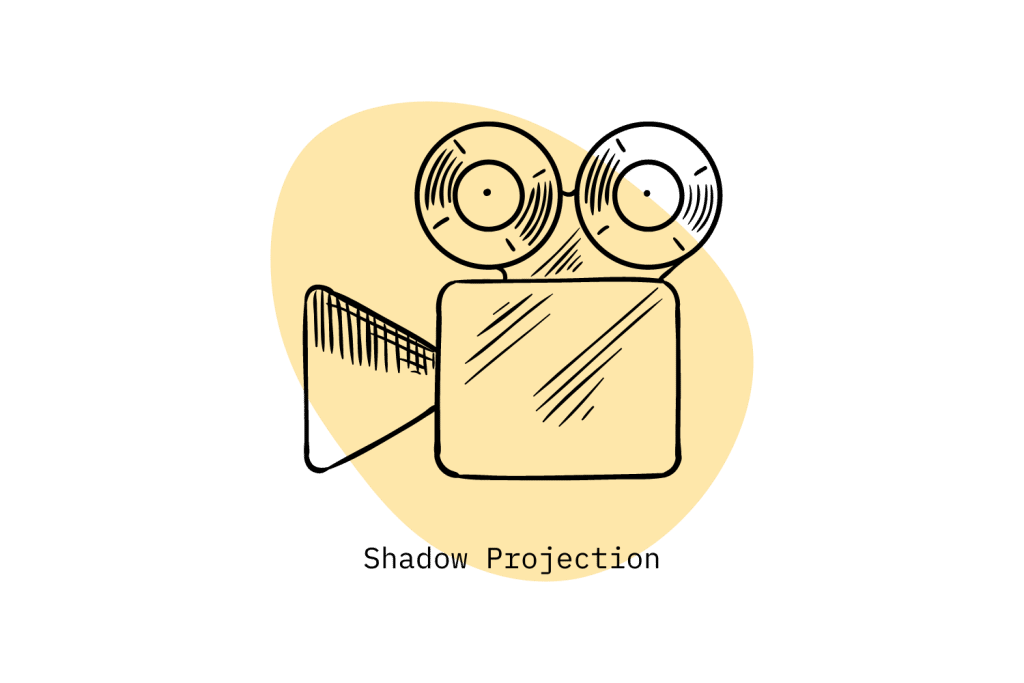
Everything that irritates us about others can lead us to an understanding of ourselves.
Carl Jung
We project our suppressed “undesireable” traits onto others around us.
This means that somewhat ironically, the traits we find most annoying or unbearable in others are a mirror image of the traits we work so hard to suppress in ourselves.
The Prompts
- What traits or characteristics in others do you find irritating?
- When was the last time you felt disappointed? What caused it? Was it justified?
- Who do you envy? What do you envy about them?
- What’s one trait you see in other people that you wish you had. Why don’t you possess this characteristic yourself?
- Write about a person you’ve never forgiven. What happened, and why did you not forgive them? Do you think you could forgive them now?
7. Triggers
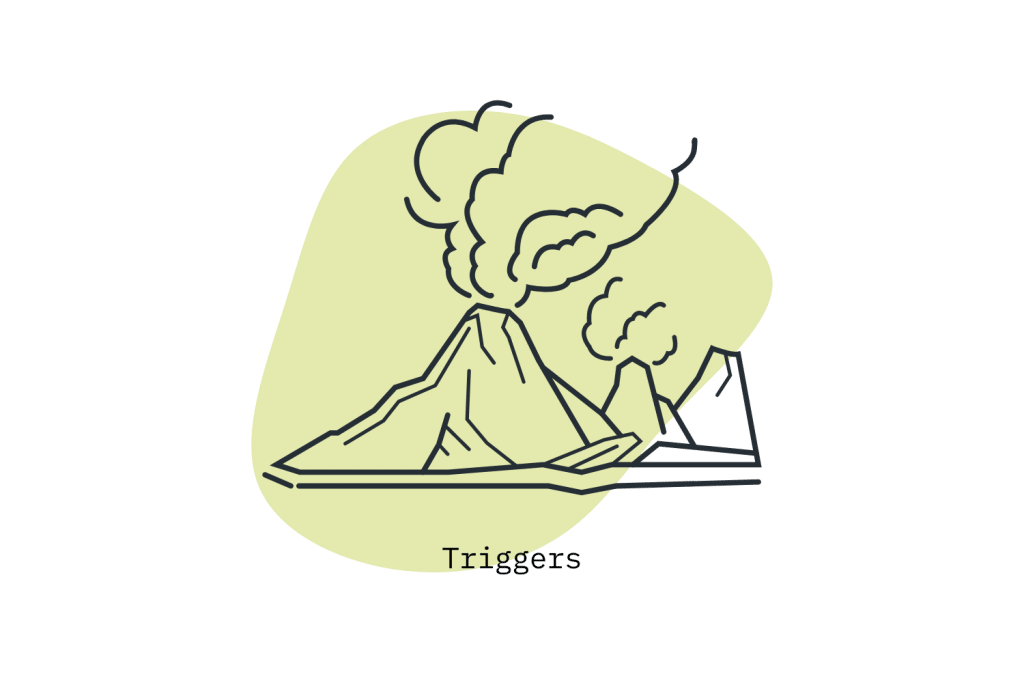
If you are easily provoked you are easily controlled.
We can suppress traits and urges successfully — for a time. However, if subjected to enough stress, or if that stress is applied to particularly sensitive areas of the psyche — the shadow can pierce through the unconscious and manifest in the conscious realm.
The result is a sudden outburst of the very traits we’re trying to suppress. Rage, lust, jealousy, greed, and aggression are all common presentations of a triggered shadow.
Learning to identify your triggers can be uncomfortable but offers some low-hanging fruit to tackle first.
The Prompts
- What emotions bring out the worst in you?
- When have you been self-sabotaging or self-destructive in your life?
- What is the most insulting or offensive thing someone could say about you? What gives these words so much power?
- What negative emotions do you tend to avoid? Why might this be?
8. Morals & Super Ego
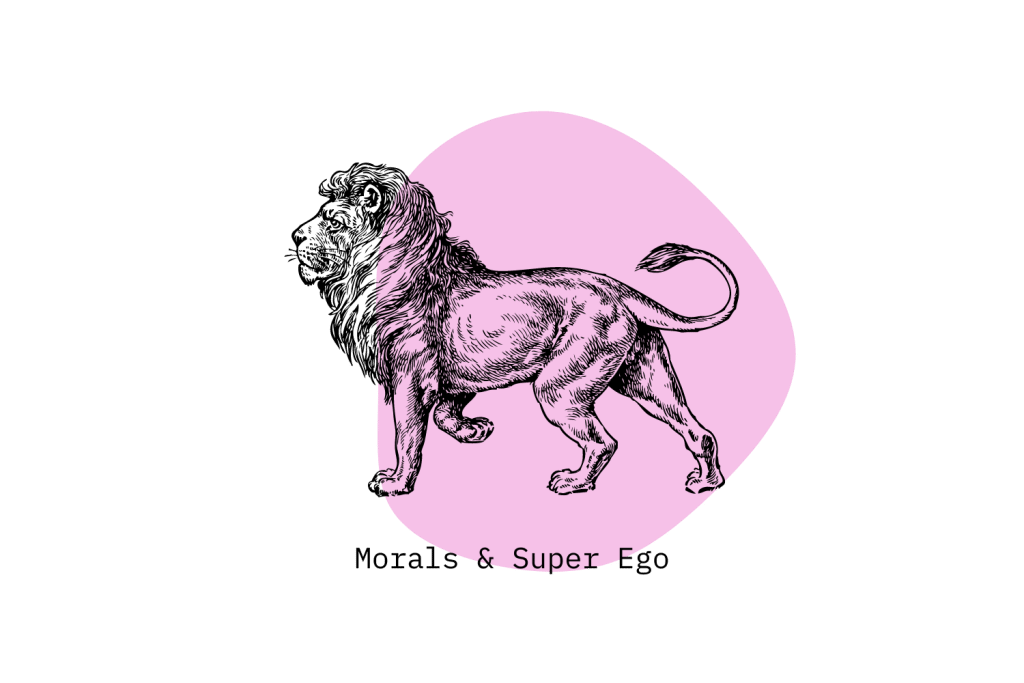
The pendulum of the mind oscillates between sense and nonsense, not between right and wrong.
Carl Jung
All humans are capable of committing atrocities. A truly virtuous person is one who knows they’re capable of causing damage and destruction but chooses not to act on it.
Our parents, society, and our peers instill a set of morals to follow in order to suppress the urge to commit atrocities that compromise our ability to live in harmony with other members of society.
These prompts seek to help you understand where your moral compass comes from and how it may be contributing to the suppression of your shadow traits.
The Prompts
- What are your core values? What are you morally passionate about?
- What philosophies or worldviews do you align best with (if any)?
- What is your moral compass? When in doubt, where do you turn to for wisdom or guidance?
- What moral code were you brought up under? Was your family religious? Do you still align with this moral code today?
9. Relationships
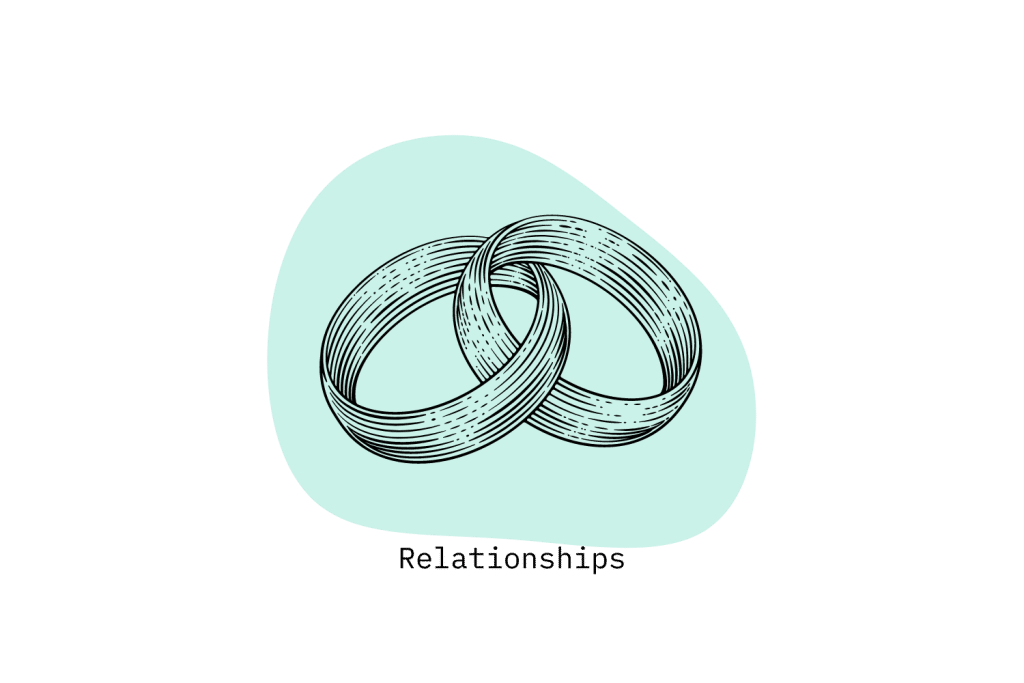
Relationships are all there is. Everything in the universe only exists because it is in relationship to everything else. Nothing exists in isolation. We have to stop pretending we are individuals that can go it alone.
Margaret J. Wheatley
Humans are social creatures — a lot of the negative manifestations of the shadow present in our relationships and ability (or inability) to connect with other people.
Observing how we interact with our friends, family, and intimate partners offers a window into the influence of our unconscious selves.
The Prompts
- Who am I most grateful for in my life?
- What qualities are most important in a spouse/partner/friend?
- What are the best traits that I bring to a relationship?
- Am I being treated the way I should be in my relationships? Why or why not?
9.1. Identifying Patterns
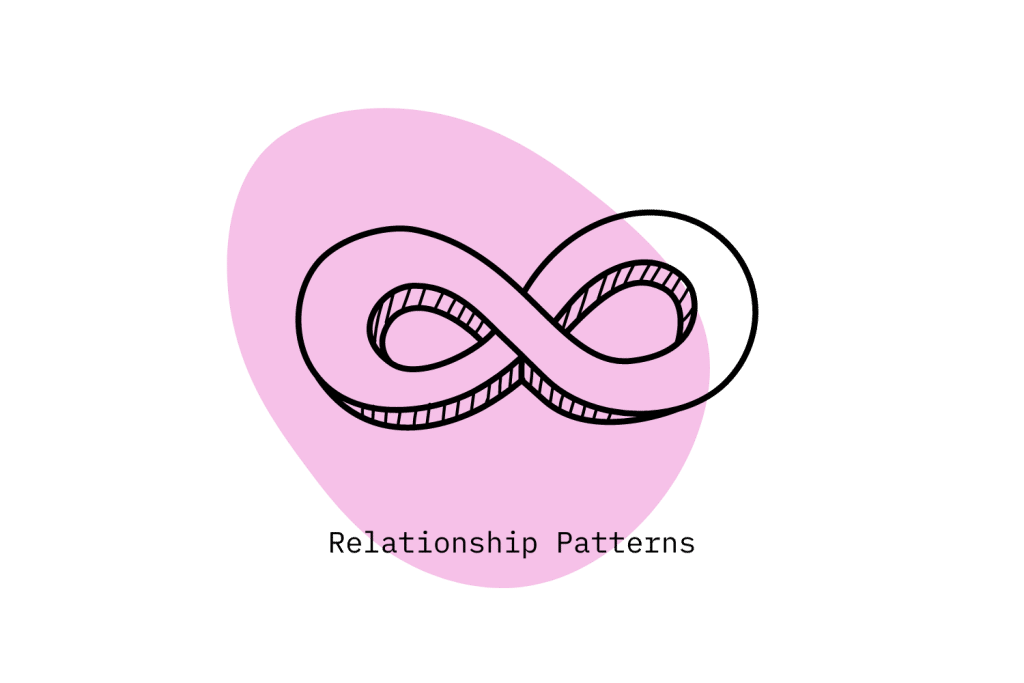
Couples choose each other with an unerring instinct for finding the very person who will exactly match their own level of unconscious anxieties and mirror their own dysfunctions and who will trigger for them all their unresolved emotional pain.
Dr. Gabor Maté
One of the ways of identifying the unconscious manifestation of the shadow is to find patterns in your relationships.
Relationship patterns are like templates we re-use over and over again without even realizing it. These templates are driven by repressed unconscious traits or desires that manifest in relationships.
Noticing these patterns and how your shadow may be involved can help if you find yourself falling for the same types of people and experiencing the same problems over and over again.
The Prompts
- Who has caused you the most hurt in your life?
- Think of a past relationship you’ve walked away from. What positive results came from this decision?
- Do you recognize any patterns in your past/current relationships? Are they healthy? What might be causing these patterns?
- Make a list of relationships that no longer serve you.
- What grudges do you hold or have held in the past?
- What is something that you’ve always wanted to confront someone about but haven’t? Why not?
9.2. Connection & Intimacy
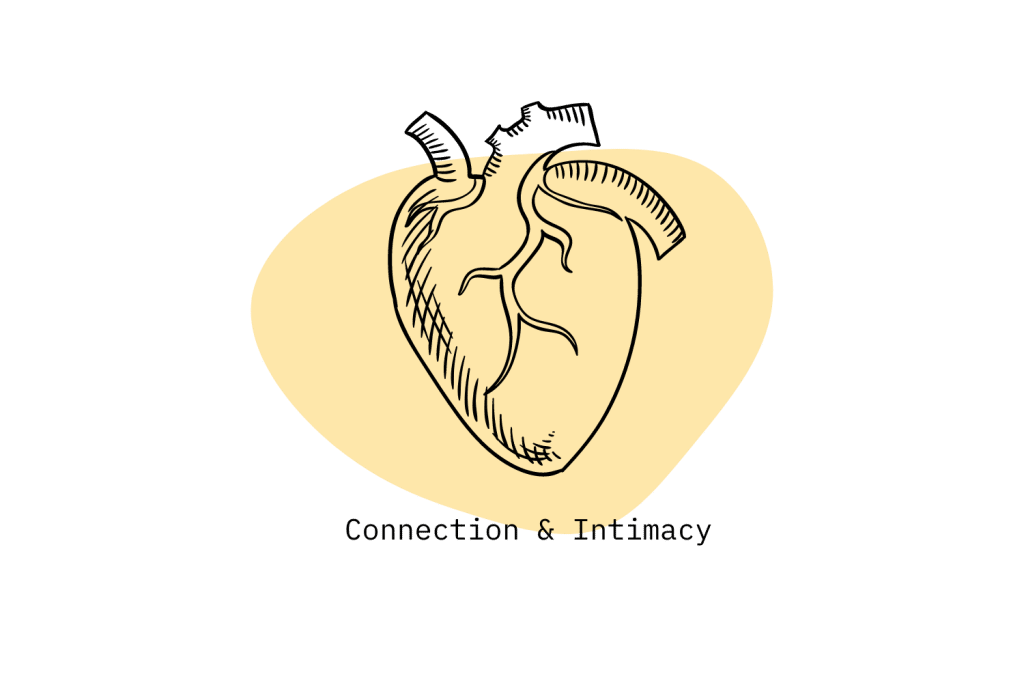
What we call the personality is often a jumble of genuine traits and adopted coping styles that do not reflect our true self at all but the loss of it.
Dr. Gabor Maté
Constant suppression of the shadow can force us to disconnect from ourselves. When we’ve lost connection with the self, we also lose the ability to connect with others.
The Prompts
- Who makes you feel the most secure and loved?
- How do you enforce boundaries? How do you feel when people overstep them?
- Who do you feel the most open to being yourself around?
- How do you feel about confrontation? Why do you think this is?
9.3. Attachment
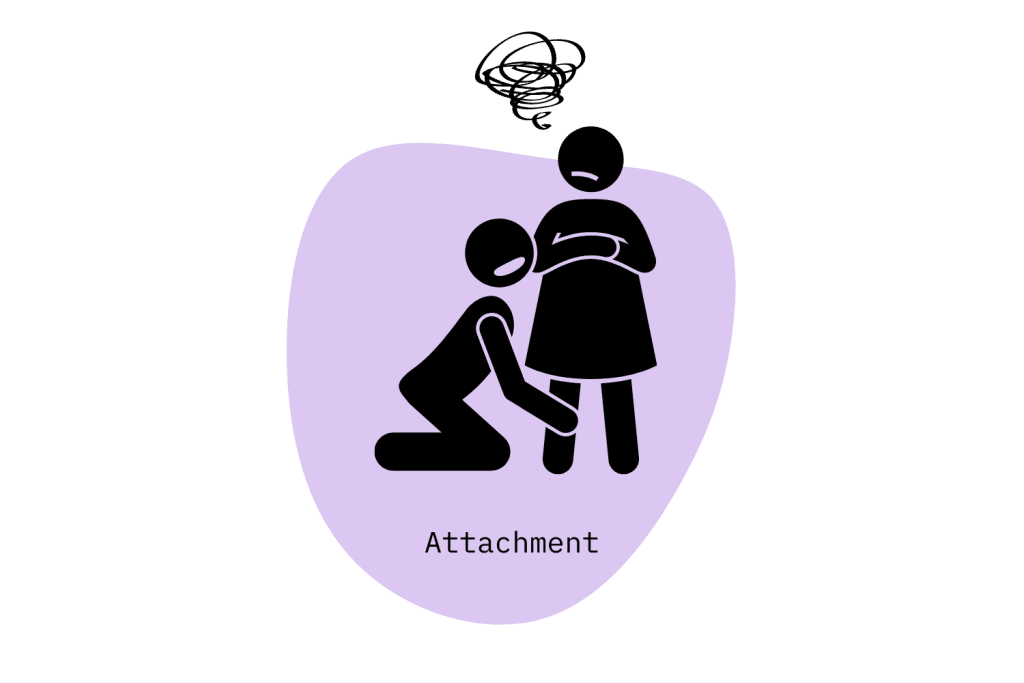
A feeling of aversion or attachment to someone or something is your clue that there’s work to be done.
Ram Dass
Attachment theory peers into the bonds between people engaged in long-term relationships. This includes romantic partners as well as the relationships between parents and children. The attachment style we develop as children extend into our adulthood.
While attachment theory is a field of focus on its own, it can provide useful insight into people working on integrating their shadow because of how deeply these styles are influenced by unconscious urges, traumatic childhood experiences, and self-esteem.
There are four patterns of attachment:
- Ambivalent attachment
- Avoidant attachment
- Disorganized attachment
- Secure attachment
→ Take the attachment style quiz.
The Prompts
- What is your attachment type? Do you feel this describes you well? What parts do you agree/disagree with?
- Who relies on you to feel safe? What do they need from you?
- Who do you rely on most? What do you need from them?
- Who has the most influence over you? Is it healthy?
10. Your “Origin Story”

It’s always good to remember where you come from and celebrate it. To remember where you come from is part of where you’re going.
Anthony Burgess
According to Jung, the shadow develops from “one’s link to more primitive animal instincts which are superseded during early childhood by the conscious mind.”
The moral adoption of our parent’s ideas during early development has a powerful influence on our unconscious.
Learning to identify adopted morality is a key aspect of shadow work.
The Prompts
- Make a list of 5–10 of the most significant or memorable events in your life thus far.
- Who were your biggest role models growing up? What did you admire most about them?
- What cultural or societal traits have informed your upbringing? How do you feel about them now?
- What is your biggest fear? Where does this fear come from?
- What’s a question you had as a child that you never got a real answer to? Do you have that answer now?
10.1. Generational Patterns
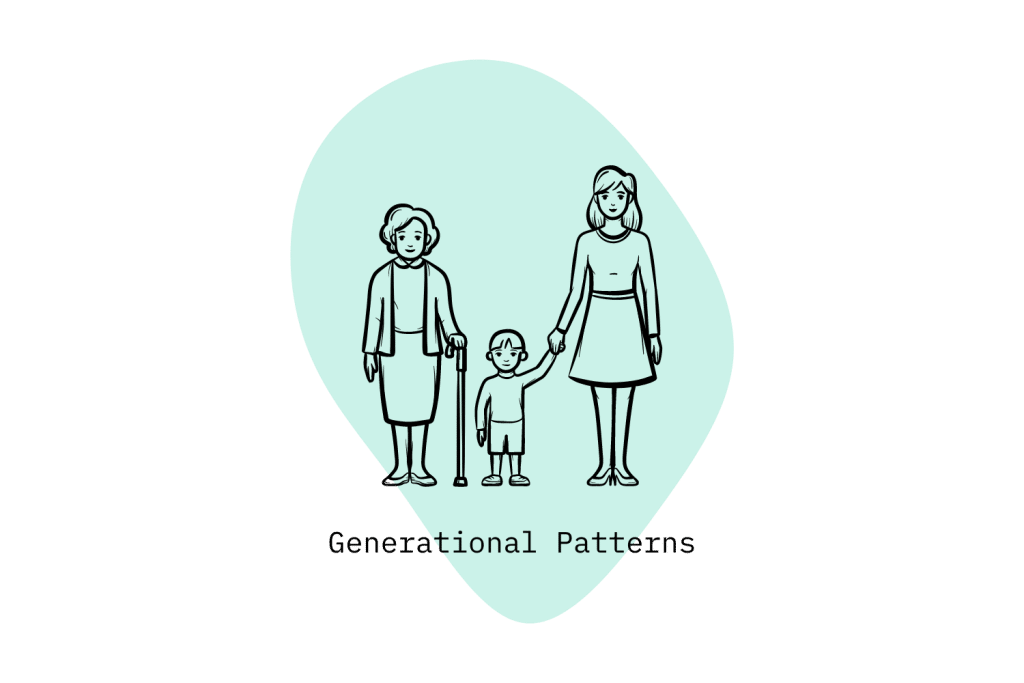
When they say ‘it runs in the family’ you tell them ‘this is where it runs out.’
Generational trauma is one of the main factors that contribute to one’s shadow.
As children grow and develop, they learn to absorb the burden of an entire family. Adoption of specific traits and repression of others are passed on unknowingly from guardian to child — installing a dark shadow along with it.
This is why many people display the same unconscious “character flaws” or negative attributes as their parents despite making the conscious decision to be different.
The Prompts
- Make a list of your parent’s (or guardians’) best and worst attributes.
- What is your relationship with your parents (or siblings) like? How was it as a child compared to now?
- How did your parents or guardians react to failure? How do you react to failure?
- What were your parent’s or guardians’ core values while you were growing up? Do you hold these today, or do they differ? How so?
10.2. Childhood & Development

Much of what we call personality is not a fixed set of traits, only coping mechanisms a person acquired in childhood.
Dr. Gabor Maté
Dr. Gabor Maté teaches us that childhood trauma is the basis for all human suffering.
The basic need that drives human nature is to connect with others — starting with our parents. If anything compromises a child’s ability to connect (such as trauma or abandonment), they close off from themselves as a defense mechanism. It’s easier for a child to cut off from their emotions than to use physical force to change their circumstances.
These effects remain with that child unconsciously throughout life, influencing their thoughts and actions as the shadow until the source can be identified and reintegrated in a more constructive manner.
The Prompts
- What’s your worst childhood memory?
- Do you have any other traumatic childhood memories?
- What could have made your childhood better than it was?
- How were you taught to deal with emotions as a child?
- Do you have any gaps in memory from when you were a child?
11. Resources & Support
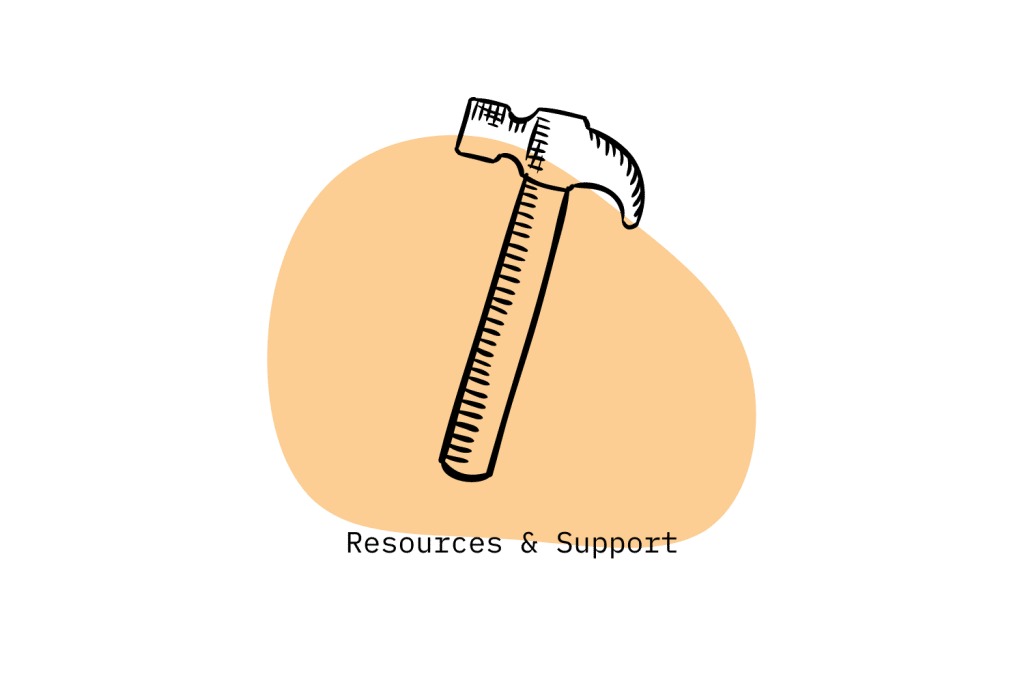
Your support network is the solid ground from which you can propel yourself upwards.
Anna Barnes
The process of acknowledging your shadow self and integrating it into your conscious self can be extremely challenging and confronting. Identifying which resources you can turn to for guidance and support is a key element of being successful with your shadow work practice.
These questions are designed to help you identify what resources are available to you currently and which ones are lacking so you can make a conscious effort to re-enforce them.
The Prompts
- Who do you ask for help when you need it?
- How often do you forgive yourself? What kind of things do you feel you need to be forgiven for?
- What is your process of forgiving others for hurting you or letting yourself down?
11.1. Coping Mechanisms
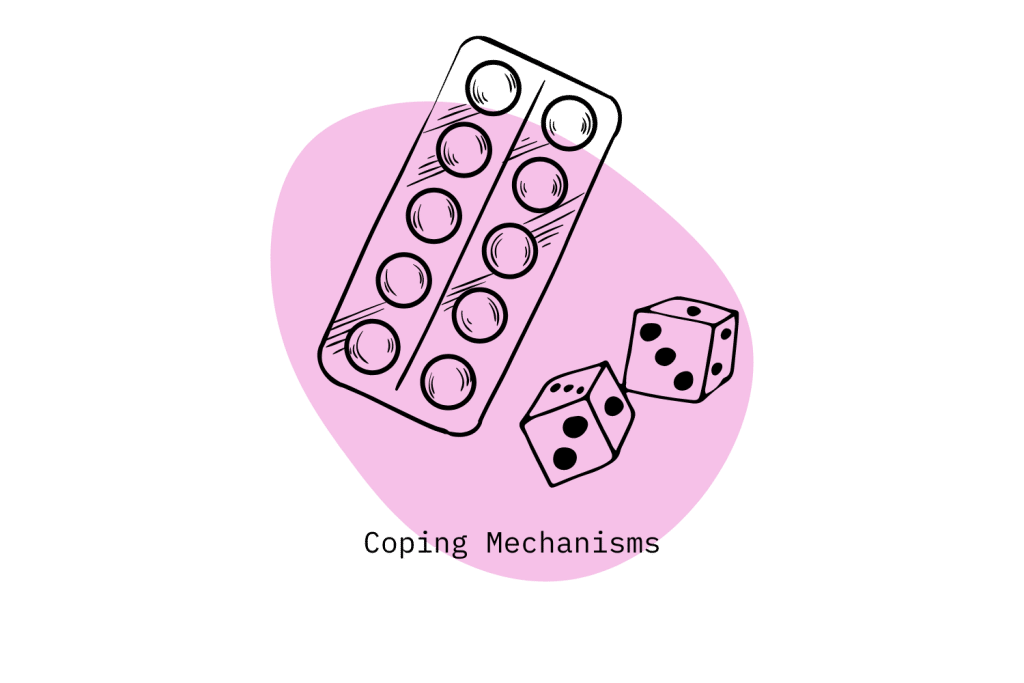
It’s impossible to understand addiction without asking what relief the addict finds, or hopes to find, in the drug or the addictive behavior.
Gabor Maté
The fundamental desire of human beings is to be happy. When we’ve repressed so much of who we are into the unconscious mind, we become disconnected from the self. We no longer know how to feel happy without some form of distraction or coping mechanism.
This distraction may come in the form of drugs, alcohol, gambling, gaming, or sex.
This section aims to help you understand the why for your chosen coping mechanism and what this action serves to distract you from.
The Prompts
- What unhealthy coping mechanisms do you employ in your life? How do you feel afterward?
- What healthy coping mechanisms do you employ in your life? How do you feel afterward?
- How do you deal with negative emotions?
- What negative emotions do you feel comfortable sitting with? Why might this be?
11.2. Self-Care
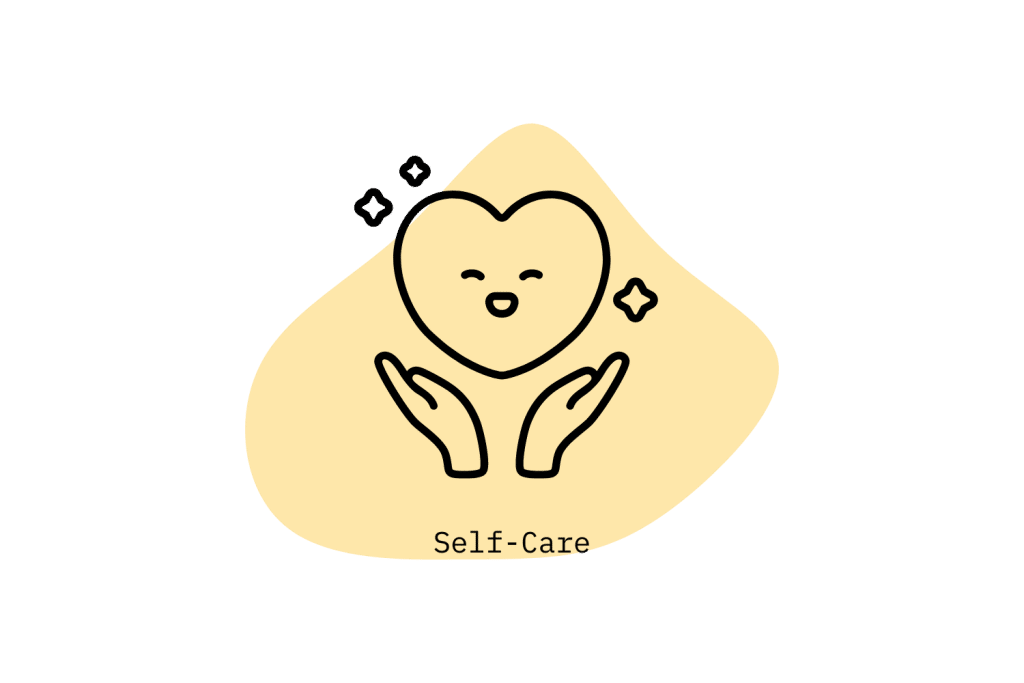
Life is a shipwreck, but we must not forget to sing in the lifeboats.
Voltaire
Self-care covers multiple aspects of health with the intention to keep someone healthy, happy, and resilient.
Engaging in shadow work itself is a form of self-care — but there are other aspects that are just as important too.
A healthy self-care routine involves components relating to nutrition, stress management, communication, gratitude, and exercise.
The Prompts
- Describe your ideal self-care day.
- What self-care practices would you like to be doing but aren’t? What’s stopping you?
- Make a list of 10 things you’re thankful for.
- Describe one change you can make in your daily habits that would provide the most benefit to your mental/physical health.
12. Self Actualization & Individuation
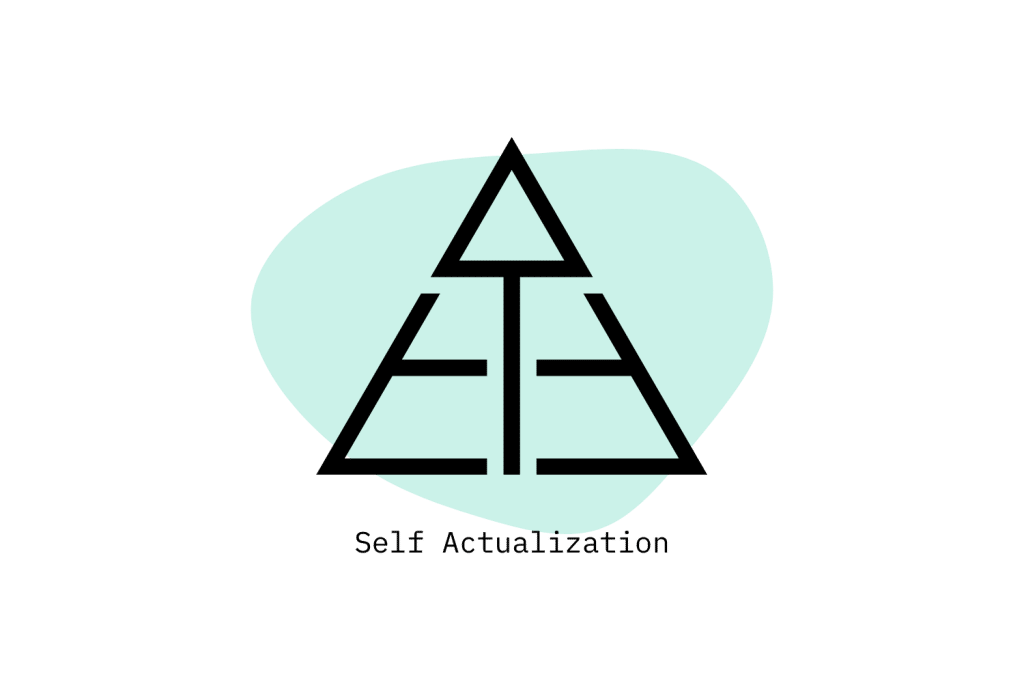
You are what you do, not what you say you’ll do.
Carl Jung
The primary goal of all humans is self-actualization — or “individuation” — as Carl Jung preferred to call it.
This is the process of differentiating the true “self” from each of the conscious and unconscious elements.
Achieving individuation or self-actualization could be compared to the Eastern concept of enlightenment.
It takes many years and a ton of hard work to achieve — and most people will never truly achieve it in their lifetime. Individuation demands consistently applying effort to the areas of shadow work and self-care.
This is considered the “end goal” of practicing shadow work.
The Prompts
- What gives you the most purpose in life?
- Outline your ideal routine.
- What activities make you feel the most “in the zone?”
- Have you ever had a “peak experience?” Describe what happened and how you felt during this experience.

How to Start Journaling Right Now
There’s no right or wrong way to set up your journal. Anything that allows you to get your ideas out of your mind and into the real world is going to do the trick.
The simplest method is to just open a blank notebook or document and start writing. There’s no need to overthink it.
Some people choose to go out and order a nice new notebook and set up fancy journals using different pens, colors, trackers, etc. All of this is fine, but try to keep the underlying purpose of shadow work journaling in focus.
Sometimes we spend more effort “preparing” the journal to write into than we do actually writing.
Ironically, busy work like this is part of the shadow we’re trying to work on. Spending too much time getting ready to journal only serves to procrastinate or avoid the actual process of facing the shadow.
Try it right now: grab some paper and either start the prompts from the beginning or take your pick from the list below.
Copy & Paste All 100 Questions
- What aspects of yourself would you like to improve? Why?
- What does the term ‘Shadow Work’ mean to you?
- What are three main goals you want to achieve with your shadow work?
- What are your motivations for exploring shadow work?
- Do you have any dark desires or fantasies? Where might these desires come from?
- Make a list of the traits you consider to be the “worst” traits a person can have?
- What causes you to feel shame?
- What trait or characteristic are you most proud of?
- Make a list of the traits you consider to be the “best” traits a person can have?
- How do you measure success?
- How do you want other people to see you?
- What do you wish people understood about you?
- When do you feel most capable of being “yourself.”
- What do you lie to others about? Why?
- What do you lie to yourself about? Why?
- Do you ever find yourself manipulating people in an attempt to protect yourself?
- Can you identify any positive traits you may be repressing? For example, creativity, playfulness, or sexual desire?
- Which of your traits or characteristics are you most proud of?
- Under what conditions do you experience your most inspired and creative self?
- What are your preconceptions towards masculinity? Where did these come from?
- What are your preconceptions towards femininity? Where did these come from?
- Make a list of your masculine traits, behaviors, and desires.
- Make a list of your feminine traits, behaviors, or desires.
- Which cognitive biases are you most guilty of falling into? Why might this be?
- Do you have any addictive tendencies or compulsions? What solution do these addictions offer for you?
- Are there any groups or individuals you dislike? What don’t you like about them?
- What traits do you have that some consider “negative” that you find helpful or beneficial to yourself?
- What makes you feel powerful?
- How do you spend your time when you’re all alone?
- How do you put yourself first without feeling guilty?
- How do you recharge?
- What makes you feel calm?
- What are the physical manifestations that present when your mental health starts to dip?
- What physical reactions present when you’re angry?
- What are the first signs that you’re burning out?
- What physical reactions present when you’re happy or excited?
- Do you have or have you had recurring nightmares? What’s the theme?
- Are there any recurring images or symbols that appear to you in dreams, when using psychedelics, or day to day?
- Do you find patterns or synchronicities that can’t be explained? What do you make of them?
- Write down a full account of a dream you’ve had recently. Try to include as many details as possible.
- What traits or characteristics in others do you find irritating?
- When was the last time you felt disappointed? What caused it? Was it justified?
- Who do you envy? What do you envy about them?
- What’s one trait you see in other people that you wish you had. Why do you not possess this characteristic yourself?
- Write about a person you’ve never forgiven. What happened and why did you not forgive them? Do you think you could forgive them now?
- What emotions bring out the worst in you?
- When have you been self-sabotaging or destructive in your life?
- What is the most insulting or offensive thing someone could say about you? What gives these words so much power?
- What negative emotions do you tend to avoid? Why might this be?
- What are your core values as a human being? What are you morally passionate about?
- What philosophies or worldviews do you align best with (if any)?
- What is your moral compass? When in doubt, where do turn to for wisdom or guidance?
- What moral code were you brought up under? Was your family religious? Do you still align with this moral code today?
- Who am I most grateful for in my life?
- What qualities are most important in a spouse/partner/friend?
- What are the best traits that I bring to a relationship?
- Am I being treated the way I should be in my relationships? Why or why not?
- Think of a past relationship you’ve walked away from. What positive results came from this decision?
- Who has caused you the most hurt in your life?
- Make a list of relationships that no longer serve you.
- What grudges do you hold or have held in the past?
- What is something that you’ve always wanted to confront someone about but haven’t? Why not?
- Do you recognize any patterns in your past/current relationships? Are they healthy? What might be causing these patterns?
- Who makes you feel the most secure and loved?
- How do you enforce boundaries? How do you feel when people overstep them?
- How do you feel about confrontation? Why do you think this is?
- Who do you feel the most open to being yourself around?
- Who relies on you to feel safe? What do they need from you?
- Who has the most influence over you? Is it healthy?
- What is your attachement type? Do you feel this describes you well? What parts do you agree/disagree with?
- Who do you rely on most? What do you need from them?
- What is your biggest fear? Where does this fear come from?
- Who were your biggest role models growing up? What did you admire most about them?
- What’s a question you had as a child that you never got a real answer to? Do you have that answer now?
- What cultural or societal traits have informed your upbringing? How do you feel about them now?
- Make a list of 5–10 of the most significant or memorable events in your life thus far.
- Make a list of your parents/guardians’ best and worst attributes.
- What is your relationship with your parents and/or siblings like? How was it as a child compared to now?
- What were your parent’s or guardians’ core values while you were growing up? Do you hold these today or do they differ? How so?
- How did your parents or guardians react to failure? How do you react to failure?
- What’s your worst childhood memory?
- Do you have any other traumatic childhood memories?
- What could have made your childhood better than it was?
- How were you taught to deal with emotions as a child?
- Do you have any gaps in memory from when you were a child?
- What negative emotions do you feel comfortable sitting with? Why might this be?
- How do you deal with negative emotions now?
- What healthy coping mechanisms do you employ in your life?
- What unhealthy coping mechanisms do you employ in your life?
- Who do you ask for help when you need it?
- How often do you forgive yourself? What kind of things do you feel you need to be forgiven for?
- What is your process of forgiving others for hurting you or letting yourself down?
- Describe your perfect self-care day.
- What self-care practices would you like to be doing, but aren’t? What’s stopping you?
- Make a list of 10 things you’re thankful for.
- Describe one change you can make in your daily habits that would provide the most benefit to your mental/physical health.
- What gives you the most purpose in life?
- Outline your ideal routine.
- What activities make you feel the most “in the zone?”
- Have you ever had a “peak experience?” Describe what happened and how you felt during this experience.


